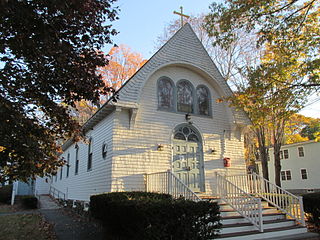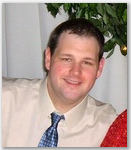Goupil Gradual
-
Corpus Christi Watershed's nifty new Gradual looks splendid. I've been using Jeff O's annotated EF Introits and Communion antiphons for the last year or two with our children and adult schola because his propers are so helpful with their large, clear presentation and the valuable interlinear translation. He also includes a starting pitch which saves me loads of time. I usually take it down a whole step for my baritone husband, but it's a very useful marker. In addition, having a few verses of the Communio on the same page as the Communion antiphon is also a big time and paper saver. The number of verses he includes is almost always sufficient for the distribution of Communion.
The Gradual and Alleluia are offered in two different psalm tones, and an optional psalm tone is offered for the Offertory.
N.B. My first description was incorrect, but thanks to Johnathan, I have amended it. Sorry about any confusion. -
I can't seem to tell from the information provided - are the full versions of the Alleluias & Graduals provided, in addition to the simplified versions?
-
I was actually remarking about CCWatershed's description.
Because if it is the case that the book omits the full graduals / alleluias, it is thereby less useful in the long run: psalm tones aren't a long-term solution and can easily become obsolete in a few years.
[The other thing I am wondering is, what source is used for the verses for the communion chants: as far as I know, it ought to be this.]
My own solution for this type of books for the schola has been to purchase Liber Brevior's for everyone applicable to own personally: including shipping, the cost is ~$34, and you get 800 pages of bang for your buck: full Kyriale, and chants for benediction too.
Thanked by 1MatthewRoth -
I would have to disagree that psalm tones aren't a long term solution...Not everyone is going to want to do the full propers. Some small parishes (such as the one I am in), with volunteer singers and a volunteer music leader (moi) won't ever use the full Gradual/Alleluia. They take a very long time to sing, and we have mostly large families with very small children and babies, so we try not to take longer than an hour and 10 minutes because basically it can be very difficult to get through extra long Masses when you have a lot of little ones, speaking from experience. As our priests says, "This isn't the monastery..." :D
Also, with limited rehearsal time for volunteer singers it would take a long time -years and years and years (and years) - to have everyone learn these from week to week. Our time is better spent increasing our polyphonic repertoire and polishing up the propers that we are able to do (Introit, Offertory) so that what we do, we do well. Just my 2 cents. :) -
No, the chant is more important than polyphony! This is a major defect of making the propers change from year to year, at least in part.Thanked by 1Ben
-
As our priests says, "This isn't the monastery..."
But it is a Mass in the Roman Rite...
-
The priest has a fair point. In smaller churches where there is a short gospel procession and little ceremonial, the authentic Alleluia chant with its full verse would be disproportionately long.
An EF/OF difference may figure in here. In the Extraordinary Form, singing the full Alleluia chant does not burden the people with standing. Their posture isn't really specified, but it's customary that they do what non-singing clergy in choir (in the sanctuary) do. That is, they rise just before the deacon sings 'Dominus vobiscum'.
In the Ordinary Form, however, the GIRM directs the people to stand for the Alleluia chant, so it's considerate to avoid extended waiting.Thanked by 1CHGiffen -
But, even small churches should be able to do the full chants and ceremony. To avoid doing so suggests that it isn’t possible, necessary, or desirable. I could see using a psalm tone on green Sundays, but on Easter? Crikey. You cheat the people by not singing the full propers. For the Novus Ordo, one could sing the Alleluia, repating it before and after with the jubilus and sing the psalm tone, using one Alleluia from the Graduale. My favorite is that of the XIX Sunday after Pentecost (dunno its new assignment). You could sing the proper Alleluia and the full verse on big feasts.
-
But, even small churches should be able to do the full chants and ceremony.
Many of them could, but not all. One of the churches where I work is quite small -- built as a mission in 1904 -- and having a full procession there would look silly. Here's an exterior photo:
Anyway, as you know, musicians have to deal with what the clergy decide to do. -
In smaller churches where there is a short gospel procession and little ceremonial, the authentic Alleluia chant with its full verse would be disproportionately long.
Also, in the roman rite, the alleluia has usually been "disproportionately long" to the action...which means maybe that's not a bad thing. -
Very charming church, Chonak! In our little chapel we've been singing the full Gradual and Alleluia for years, and no one has ever complained that it's too long, but our congregation is composed of hardy souls. Some actually complain if we use psalm tones for the Tracts. : )
-
I’ve seen Solemn High Mass in a quarter of that space, but that sorta obscures my second point, that by doing so we get mental blocks about it. Yes, you are right, it is up to the clergy, but often that means little.
Ben, this is probably one reason the readings were doubled. The priest can also pray the lections while not getting lost during both of them. -
I don't know - by the time the organ plays the Alleluia, the choir sings it, and then the congregation sings it, followed by a verse, followed by the Alleluia again...... I think that many Gregorian Alleluias could have fit in that same space.
-
Somewhere, at some point, I came across a text from St. Pius X condemning the practice of shortening the liturgical chants in order to fit more polyphony (however beautiful) into the Mass. I believe he called this practice "particularly wicked". Also mentioned was the general rule that if your choir has the ability to sing the proper melodies, it should (or must) do so.
Perhaps someone can provide the quote. I cannot find it now. -
We sing the full Alleluia chant in our parish but the verse is sung as a psalm tone. This is what you find in the Goupil Gradual.
I'm just a bit curious- of those of you who think the full everything should be chanted, how many of you have 4 or more children under the age of 10 in your family? Show of hands?
-
I have six, but the youngest is 14. : ) I've had many years of practice with wiggly toddlers and was very adept at whisking them out of sight and hearing if things went downhill. There are many little ones at our Sunday High Mass, and they very rarely cause any trouble, though it caused some chuckles last Sunday when one feisty little tot suddenly said during the Canon of the Mass in a very clear voice, "I'm NOT a boy. I'm a GIRL."Thanked by 1tomjaw
-
I have 3.
I (solo- and group-) chanted multiple EF Masses this Jan-March while pregnant, holding my wiggling 2yo on my lap, with my 4yo sitting beside me.
Most Masses they just sat beside me or sometimes with my parents, quietly. Stuff happens, but we can make it work when we have the determination. -
That reminds me of a lovely couple who sing with us sometimes. They have a perfect system worked out. She takes care of their two toddlers while the husband sings the propers, and he watches them when she sings the motets. Sometimes, though, she will hold the baby and sing, but he is a wonderful little guy and just watches us all with big wondering eyes.Thanked by 1tomjaw
-
CCooze, that is brave!!!
-
We sing at the EF... We have six children under 10yo. Our EF community has 9 servers 7-13yo and another 12 boys 0-6yo, and that is before we start counting the girls.
We have always sung the full chants without any problem... or complaints!
I suspect, and my experience as a schoolmaster would confirm, that children's attention spans will vary to what is expected. If you expect 1hr 10 mins that is all you will get... N.B. Our Mass takes just under 1hr 30 mins.
Welcome to the MusicaSacra Forum!
To participate in the discussions on Catholic church music, sign in or register as a forum member, The forum is a project of the Church Music Association of America.
Categories
- All Discussions21,107
- General Music Discussion7,594
- Job Openings1,303
- Management of Music Programs833
- Choral Matters519
- Church Documents and Rubrics504
- CMAA Notes291
- Events651
- For Newcomers: Read First23
- Sacred Polyphony528
- Hymnody821
- Gregorian Chant: General2,582
- ↳ Graduale Romanum and Liber Usualis354
- ↳ Graduale Simplex55
- ↳ Semiology57
- Vernacular Plainsong671
- Anglican Use and Anglican Chant66
- Organ, Other Instruments and Repertoire414
- New Composition/Works in Progress1,208
- Recordings222
- Music for Hispanic Ministry151
- Music Education: Children205
- Music Education: General214
- News Items242
- Positions Wanted58
- General Discussion: Catholicism723
- Amusements170
- General Discussion1,001
- Opinions113







